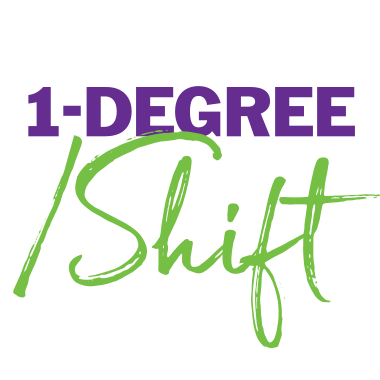Diversity, equity and inclusion are vital areas of transformation in business and workplace culture today. Many organizations are starting to take ownership and responsibility for doing what’s right and what’s been long overdue – supporting mindset, behaviour and systemic shifts with diversity, equity and inclusion and therefore, activating a spark for sustainable change within their larger workplace cultures. This blog explores an example of that shift at work.
One client we are honoured to be working with, a healthcare consulting firm, is doing this work thoughtfully and strategically. Leaders in this firm had the foresight and wisdom to hire experts in BOTH DEI and Workplace Culture to work in tandem as the firm embarked on its culture journey. Why? Below you’ll find the answer to this question along with other invaluable insights we have gained by going through this unique culture experience alongside DEI experts as our culture partners.
Insight #1: Approach Culture & DEI Together & Strategically
Culture and DEI do not operate in vacuums, they…
A. Have a symbiotic relationship
Our client fully recognized that DEI is an element of the firm’s overall culture, and that one could not be fleshed out without the other and still allow the firm to operate the way it aspires to: in a congruent, consistent, aligned environment where inclusivity, equity and diversity is embedded into the larger cultural DNA. For that reason, the Culture and DEI initiatives were integrated from the very beginning by creating an internal culture brand – a look and feel – for our combined culture and DEI efforts captured in this tagline: “Realizing our Potential Together.”
B. Together tie into the organization’s long-term planning
From our initial conversations with our client, it was clear the culture journey they intended to embark on was not going to be a one-off, stand alone initiative, but rather a long-term commitment to upholding and evolving their already fantastic firm culture. What were the indicators? They…
a) Tied the culture journey (both DEI and Culture evolution) in with their business objectives and strategy;
b) Are curious to know how our culture improvement could be measured (culture KPIs) so they could track progress and create objectives;
c) Are looking ahead to upcoming fiscal years and solidifying funding and resourcing to ensure that ongoing DEI and Culture improvements continue to be sufficiently funded.
Insight #2: Form Culture Crews that reflect the workforce you aspire to have
We took a thoughtful approach to supporting our client with the selection of their “Culture Crew” – a cross functional team of informal influencers who choose to be champions and change makers of an organization’s culture.
As ambassadors of culture activation within an organization, the make up of a Culture Crew is as crucial to its success as is how they champion culture and DEI shifts within an organization. To ensure a diverse group that is representative of the firm and the aspirational make up of the firm, we considered the following factors for Culture Crew selection: diversity in race, gender, age, tenure, area of the business, and level within the organization. In doing so, we ensured diversity of thought, work and life experience was baked into the make-up `of the Culture Crew and therefore, by extension, baked into all initiatives they will lead as change makers in the organization.
Insight #3: Make conscious what is unconscious
Culture Code Creation Process
A Culture Code is an agreed upon “code of conduct,” made up of core values that represent what is most important to an organization and how it chooses to operate. These values and supporting behaviours are intentionally and consciously co-created by the organization to set the tone and expectations for how to act. It also serves as a catalyst for the organization’s culture to flourish.
Culture codes created in isolation, and not through a DEI lens, likely cycle the same beliefs, mindsets, and behaviours that we’ve unconsciously perpetuated in our systems and workplace cultures. However, when Culture Codes are created from a place of expanded awareness – through the support of DEI experts – and therefore created from a more expansive, inclusive, diverse perspective, we start to breathe into our cultures an aspirational vision of creating equitable, diverse and inclusive workplaces.
Unconscious Bias Training for Culture Crew & Management
According to a recently published article on the Stanford news website, a Stanford psychologist identified seven factors that contribute to perpetuating American racism, and “Of the seven factors the researchers identified, perhaps the most insidious is passivism or passive racism, which includes an apathy toward systems of racial advantage or denial that those systems even exist.” It all starts with awareness. (https://news.stanford.edu/2020/06/09/seven-factors-contributing-american-racism/)
And raising awareness through training is exactly what we did to onboard the members of our client’s Culture Crew. Each member was required to take training on Unconscious Bias to expand their awareness of what unintended factors could be influencing their own decision making. If these Culture Crew members were going to be role models and champions for the evolving culture at this firm, we agreed it was imperative for each member to become more aware of how they could be contributing to perpetuating old systems and ways of thinking. We also requested that all members of the Management Team complete their Unconscious Bias training before they provided input into the Culture Code.
In honour of Black History Month, and in a world where we need to move beyond performative measures, it is our pleasure to highlight this work and that of other organizations that recognize the importance of working on DEI and Culture in tandem – as one supports the other. They are taking an active approach to helping level the playing field through their commitment to the integration of DEI and Culture Evolution work to create workplace cultures where people feel like they belong and can thrive.
Hats off to organizations doing this important integration work.


